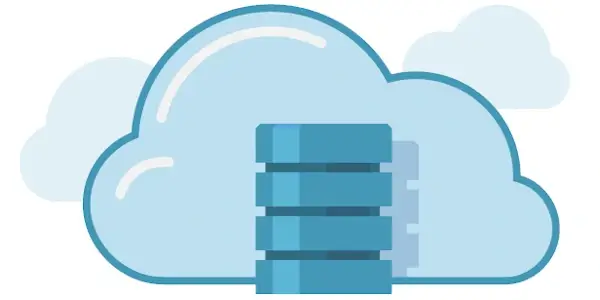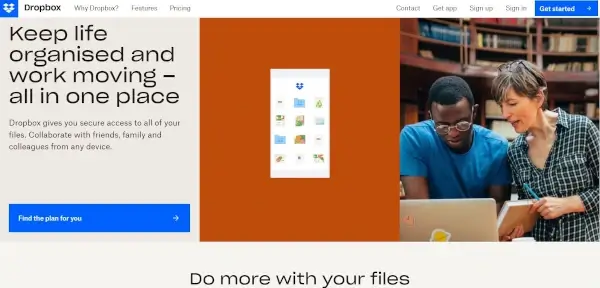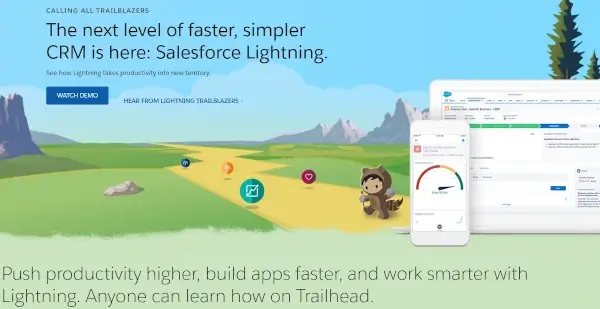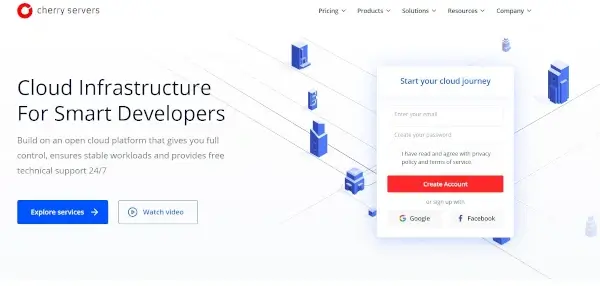
The demand for cloud services is rising. Databases have been popular tools for a long time. However, the landscape is changing, with cloud databases becoming increasingly popular.
What Is a Cloud Database?
Let's start by defining a database; at its simplest, it is a system that allows for information to be stored, organized, and accessed. They make elements of business, such as product inventory and customer service, a lot easier.
As the name suggests, a cloud database is any database service built, provided, and accessed in a cloud environment. There are various types of cloud databases out there, and businesses (as well as individuals) opt for whichever best suits their needs. Generally speaking, cloud databases are offered within the context of the database-as-a-service model (DbaaS).
Traditional vs. Cloud Databases
Traditional databases are on-premises databases. They require companies to provide the underlying infrastructure and tools to manage them efficiently.
On the other hand, cloud databases offer a more flexible and scalable system. Moreover, the database provider handles the system's management and maintenance, amongst other things.
Moreover, certain cloud database providers also offer a high level of control over the database. This allows for essential processes, like data analysis, to be carried out exactly how you want them to be. For instance, some databases will enable you to build machine-learning models to support your data analysis, including advanced techniques like key driver analysis to identify the factors that most influence business outcomes.
However, this can get complicated as you have to consider several elements, such as RDD API, which are critical here to lower latency concerning machine learning training algorithms.

Why Are Cloud Databases So Popular?
Cloud database warehouses offer many advantages, making them (understandably) very popular.
Cost-effective
Generally speaking, cloud databases can be purchased via a subscription and pay-per-use pricing plan. This means you can pick and choose what features to pay for depending on what you need. As your business grows, the plan you subscribe to can change or be expanded to reflect your evolving needs. This way, you do not have to spend money on unnecessary features.
Moreover, using a cloud database means you don't need to buy any dedicated hardware, nor do you need space to store this hardware.
Cloud databases make it easy to access information
Since a cloud database is accessed through a cloud platform, its information is easy to access from any location. The whereabouts of the end-user are irrelevant, and any data needed is readily available. For example, one of your team members may be on a sales trip but need access to the CSAT data relevant to the client they're meeting to tailor their pitch better.
In today's landscape, this feature has become pretty much necessary. It allows companies to employ remote workers without worrying about their access to data, as long as they have an internet connection.
Cloud computing systems are flexible
One of the main advantages of cloud databases is that they offer great flexibility. They come with features that can be turned on and off depending on your business needs. With a range of servers available and various pricing options, it is relatively easy to find the best fit for your company.

What to Keep in Mind When Looking at Cloud Databases
Cloud databases are popular, but that doesn't mean you should purchase one with your eyes closed. As with everything, you need to determine whether they are worth the investment and be aware of their disadvantages or possible challenges. To help you with this, we've included some points to look out for.
Security
Security is one of the biggest reasons behind people's reluctance to migrate to cloud computing systems. Given that many companies use databases to store consumer information, it's only natural that one of the primary concerns is regarding possible data breaches and cyberattacks.
For this reason, ensure that whatever cloud database you opt for is serious about its security so that the information that has gone down your data pipeline remains safe. For instance, many cloud database providers use key encryption and encrypted backups.
Also, ensure that the provider you go for has an appropriate response plan in case of a data breach. This will not only put your mind at ease but also let you and your employees know how to best act in the unlikely event.
Backup
Another critical thing to ascertain is that the cloud database system is prepared for equipment failure and power outages. You don't want to face huge data loss without the possibility of recovery. For these reasons, ensure the selected system has some form of backup, like remote server backups.
Downtime
The point of cloud computing systems is that people can access the necessary data from anywhere. This promotes a continuous workflow and minimizes the disruptions that can pop up when dealing with an on-premises database. Therefore, downtime can be infuriating. If business continuity is high on your list of priorities, opt for a resilient database with high availability.

However, figuring out which database provides you with the features you are after isn't always easy. We recommend talking to the providers about your needs so that they can offer you a solution that best suits you without having to purchase extra features.
Also, think about tools you can use to make the experience even smoother. For example, it could be worth looking into data virtualization or ETL (extract, transform, load) automation tools; the latter is crucial in a company's data integration toolbox for using your data. Consider no-code solutions that allow moving data to serverless warehouses, like Google BigQuery, or seamlessly connect Xero to BigQuery.
Keep in mind that cloud databases can also become unavailable, regardless of the 100% uptime guarantee some vendors advertise. It's a good idea to sign up for cloud database availability monitoring to be the first to know when the database goes down.
Types of Cloud Databases
Many different types of cloud databases offer various solutions. If you want to implement a cloud database into your business, it is a good idea to research beforehand to choose the best solution for you and your business.
This article will cover various cloud database types and how they can suit different businesses depending on their needs and requirements.
Database as a Service (DbaaS)
This general term includes both SaaS and PaaS options, which we'll look at in more detail below. DbaaS provides system solutions that vary depending on what you want. While some are easy to use, others trade this ease to offer higher levels of configurability.
Software as a Service (SaaS)
SaaS stands for software as a service. Though the term itself is not used much within the context of cloud databases, it refers to the software delivery of a database accessible from any device through an internet connection.
This service is aimed at everyday users and presents the end-user with the software without burdening them with cluster operations and tasks such as dealing with technical issues.
Simply put, this service allows you to log on and start working without worrying about anything else. The great thing about this option is that all the headache associated with running it remains with the provider, allowing the user to get on with their work. Providers of SaaS are subscription-based businesses, and they usually offer various subscription options to suit your needs.
Examples of SaaS applications: Dropbox, Canva, and Slack.

Platform as a Service (PaaS)
PaaS is a model that allows you more control over the operation. Unlike SaaS, it provides the components and tools needed to develop and manage the application. Because of this, it is more geared towards software developers and people very familiar and comfortable with technology. However, PaaS cloud providers still provide the infrastructure you need to develop your application.
If you think of SaaS as buying a cake, PaaS will purchase the ingredients to make the cake yourself.
Examples of PaaS applications: IBM Cloud Foundry, Salesforce Lightning

Infrastructure as a Structure (IaaS)
IaaS is the closest you can get to a traditional database. The main difference between the two is that with IaaS, you can still use the cloud to your advantage. However, it is the option that brings the most amount of work with it.
IaaS offers a virtual platform on which you can control the operating system (OS), software, configuration, etc. Out of the options mentioned, this one gives you the most control. This control also comes with the burden of maintenance, which can put some people off. However, the great level of control means that you can produce a truly tailored database to your needs.
Using IaaS will require a fair deal of collaboration from your team members. For this reason, it could be a good idea to draw up some rules or guidelines, such as the agile manifesto, to ensure all stay on task and work towards the same goal in harmony.
Continuing from the cake analogy, IaaS would be like buying the kitchen where you want to bake the cake.
Examples of IaaS applications: Cherry Servers, Digital Ocean, and Linode.

The Takeaway
Many have been turning to cloud databases, with cloud computing systems becoming the norm in today's business world. These can offer a range of flexibility and ease of use to guarantee an improved experience. We hope this article has helped you decide whether to invest in a cloud database and, if so, whether a SaaS, PaaS, or IaaS would best suit your needs.
or seamlessly connect Xero to BigQuery.
X


 Copyright 2000-2025, WebSitePulse. All rights reserved.
Copyright 2000-2025, WebSitePulse. All rights reserved.